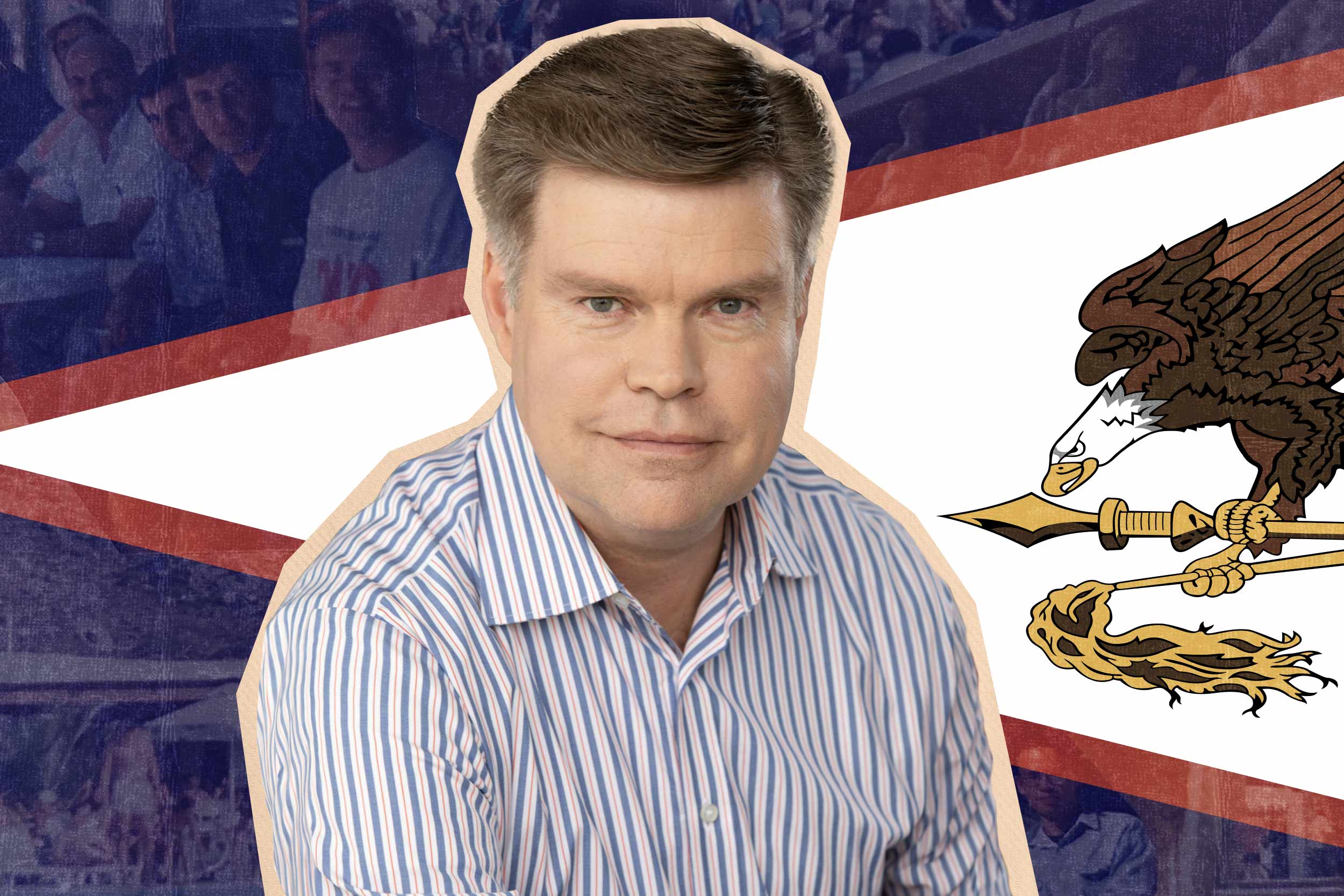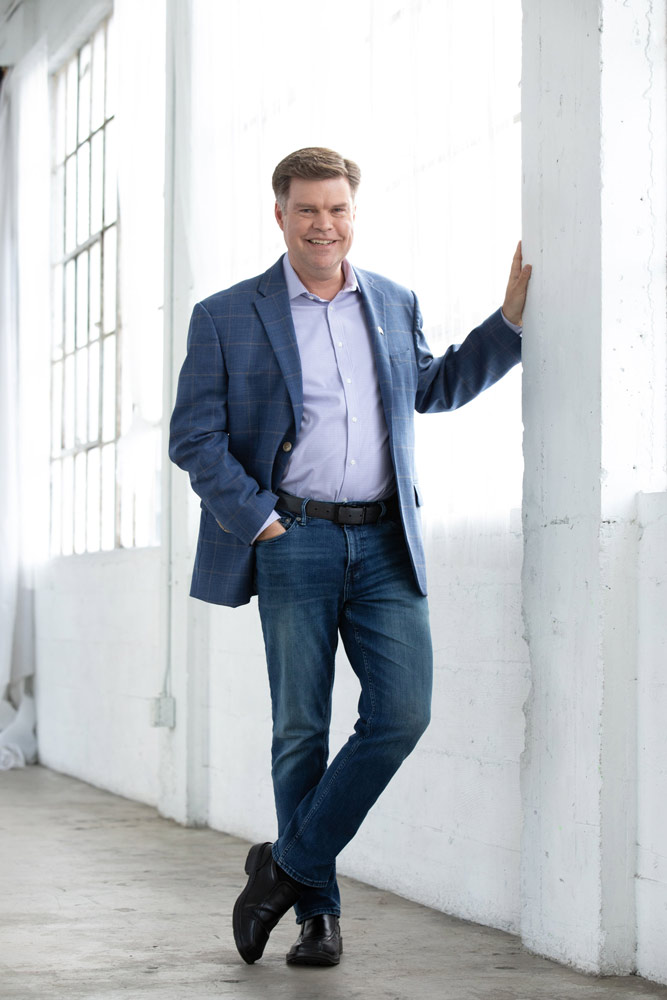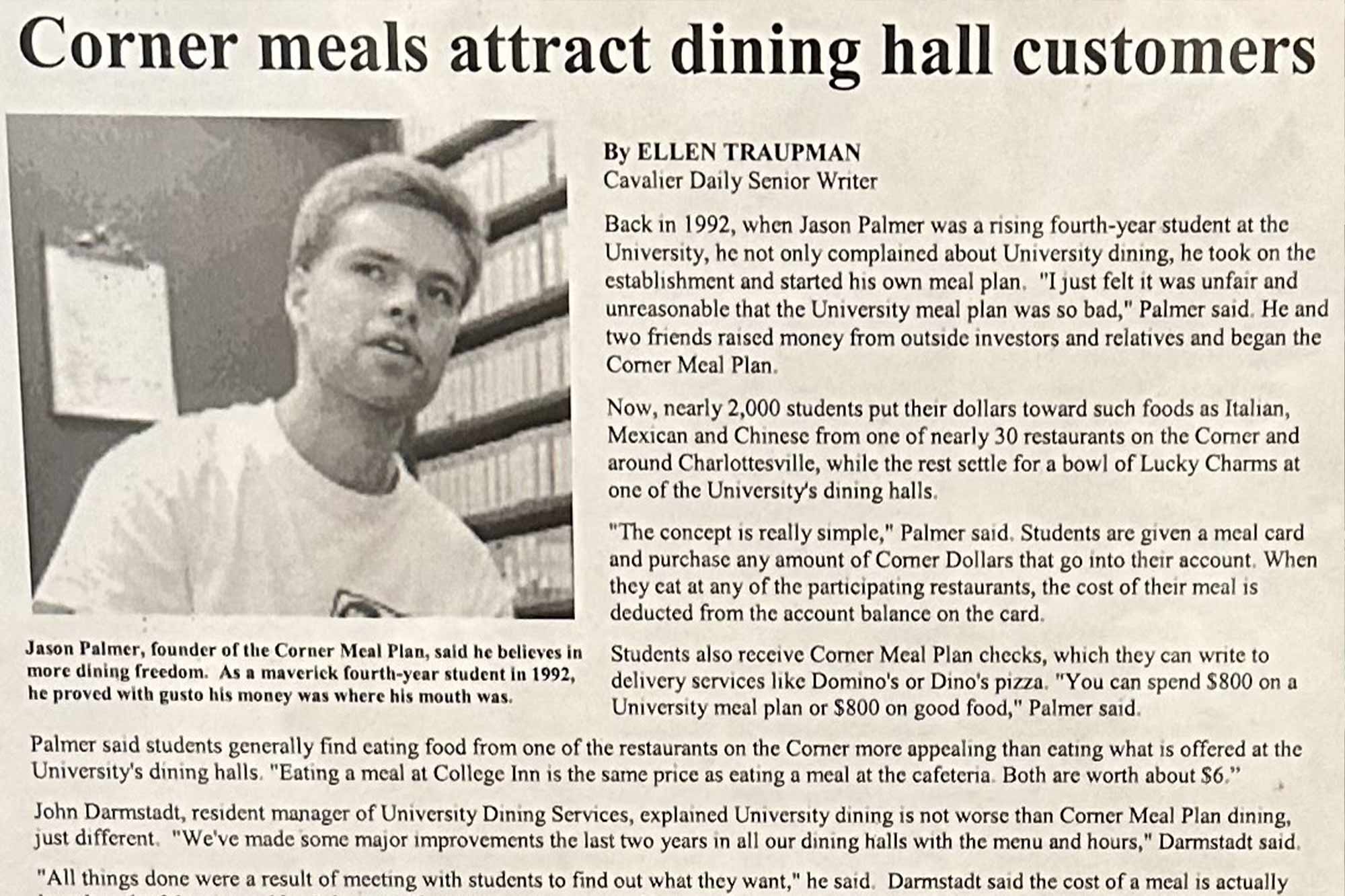You’re forgiven if you didn’t know Palmer was running for president. Reporters have described him as a “previously unknown” candidate. And yet the unknown candidate was the first person in 44 years to beat an incumbent president in a primary.
Besting Biden in a state primary was out of the question. But the contest in American Samoa presented an opportunity. The territory is so small that even a dozen votes can sway the outcome. Former New York Mayor Michael Bloomberg won it in 2020, and Palmer used that victory as a blueprint and launched a virtual campaign there.
“We wanted to get 100 votes and, you know, we didn’t get there. We only got 51, which was halfway to our goal,” Palmer said. “But it also happened to be a low-turnout election.”
The archipelago’s residents cast just 91 ballots on Super Tuesday, so Palmer’s 51 votes gave him the edge.
Palmer’s win won’t dent Biden’s campaign, but it did land the Echols Scholar and 1994 interdisciplinary studies graduate a mention in every major news outlet.
“I know I’m a longshot candidate with very little chance of winning,” Palmer says on his campaign website. “Presidents almost always win renomination from their party. As a result, our campaign is less focused on winning and more focused on ideas, solutions and changing the conversation.”
Those qualities – ideas, solutions and changing the conversation – were also hallmarks of Palmer’s time on Grounds, where he launched three enterprises as an undergrad in the early 1990s.
First was the “Grand Canyon Adventure,” a spring break excursion that involved hauling 14 classmates across the country in a U-Haul minivan for $99 each. “We stayed in tents at the Grand Canyon, and it made enough of a profit that the adventure was free for me,” he said.
Next was “Airport Limo,” or “basically an illegal cab company where I drove people to the airport.” He tried make it legal by applying for the special permits and plates, but balked at the cost of taxi insurance.
But near the end of his time on Grounds, Palmer landed on a gem. He invented the “Corner Meal Plan.” Students with a special debit card could eat at participating Corner restaurants instead of in dining halls. Within 18 months, more than 3,000 Hoos signed up. Palmer stayed in Charlottesville after graduation to grow the business and, at 24, sold the company for six figures.












